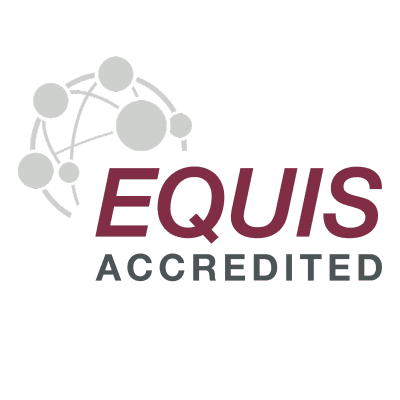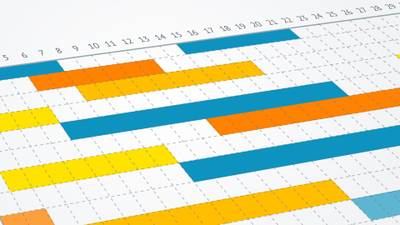Join a renewable energy economics course you can study flexibly, 100% online.
Study with energy economics experts to better understand the economic and political challenges of the global energy transition.
Learn to analyse the economic issues we face as the energy system transitions from fossil fuels to renewables.
In this Masters-level online short course, you’ll gain a better understanding of how the world might make this transition, and enhanced skills in:
- the analysis of government and economic policies relating to the energy transition
- the evaluation of the role of consumer behaviour in determining the outcomes of the energy transition
- the relationship between the environment and economic activity, and
- the economic nature of different elements of the energy system.
Who can join this energy transition economics course?
This distance-learning course is ideal for:
- energy professionals seeking career progression and enhanced knowledge of the sector, or
- graduates looking to begin on a successful career path in the energy industry.

Build credits towards a Masters degree
This online course is part of online:
You can use the credits you earn on this short course towards this MSc qualification.
What you’ll study
In this course, you’ll cover the following topics:
Environmental sustainability
- The interdependence of the environment and economic activity
- The drivers of environmental impact
- How economic growth affects the environment
International environmental agreements
- Is environmental degradation a global challenge?
- Overview of international environmental agreements
- What drives a country’s decision to participate in an environmental agreement?
- Trade and the environment
Electricity markets
- The economic nature of different elements of the electricity system, including supply, transmission, and distribution
- What is the electricity mix?
- How wholesale electricity markets work
- The ‘missing money’ problem in revenue-only wholesale markets
- How the integration of renewables affects the missing money problem
- How can capacity markets help?
Energy efficiency issues from demand-side perspectives
- Factors that affect households’ and firms’ decisions around adopting energy-efficient or low-carbon technologies
- Are there market or behavioural failures in these decisions?
- How government policies can assist the diffusion of these technologies
Renewable energy and policy
- Policy instruments used to support the development of renewables, and how they work
- What is emissions trading and carbon offsetting - and is it effective?
- How the dynamics of renewables costs develop using learning curves
Oil and gas depletion policy
- How should governments manage oil and gas resources in the energy transition?
By the end of this course, you’ll be able to…
-
Demonstrate knowledge and understanding of the nature of the economic and political challenges involved in the energy transition.
-
Evaluate the role of individual behaviour of consumers and firms in determining the outcomes of the energy transition.
-
Analyse various economic policy options that incentivise the energy transition.
-
Evaluate government policies and their influence on the energy transition process.
-
Discuss the trade-offs for different economic policies used to support the energy transition.
-
Analyse when and why governments may not cooperate internationally.
Choose the University of Aberdeen for renewable energy economics courses

We’re EQUIS accredited
Join a Business School that’s EFMD EQUIS accredited, placing it among a select group of globally recognised institutions.

Earn as you learn
We fit around full-time work, so you can earn qualifications while you keep earning a salary.

You’re in expert hands
We’ve been training energy professionals for decades and delivering online learning for over 20 years.
How you’ll study
Online learning
This distance learning renewable energy economics course is delivered flexibly, 100% online.
You can learn anywhere, with no need for a study visa, and manage your hours to suit you.
Your teaching
This course is taught at Masters level.
Teaching is delivered through MyAberdeen, our online Virtual Learning Environment (VLE). It holds all the materials, tools and support you’ll need in your studies. Take a look around MyAberdeen.
The materials for this course are developed by active researchers and academics. You can access your learning materials on computer, smartphone and laptop, 24 hours a day. You’ll find a range of resources at your fingertips, including:
- interactive learning materials
- videos
- live online webinars with course lecturers
- reading materials
- discussion boards with colleagues and tutors
- the online resources of our award-winning Sir Duncan Rice Library.
In this interactive course, you’ll participate in many discussions with fellow students and course lecturers using online discussion forums.
Live online webinars
Across the course, you’ll have eight one-hour live sessions with academic staff, all experts in the field of energy economics. These live online webinars support the main learning material and are central to your learning. Your participation in them will count towards your final grades.
Ahead of each live webinar, you’ll be asked to study the online materials provided, post questions to your tutor online, undertake multiple-choice quizzes and other tasks. You may also be asked to work in small groups to prepare for some of the live sessions.
Your tutors
This course is delivered by the University of Aberdeen Business School.
Your tutors are members of the internationally recognised Aberdeen Centre for Research in Energy Economics and Finance (ACREEF). They are active in research and teaching across energy economics.
This course is assessed online via:
- your engagement in the online discussion forums (worth 5% of your final grade)
- online quizzes that take place during the course (worth 20%)
- an exam-style, open-book assessment at the end of your course (worth 75%).
There will be a one-week window in which you can complete this final exam-style assessment. It will take place at the end of the semester in which the course runs.
Live online webinars
This course features eight online webinars. Each webinar is live and scheduled to last for around one hour.
Webinar dates and times will be organised flexibly at the start of the course. Your course coordinator will consider everyone’s circumstances and time zones before setting up live webinar times.
Study hours
The course totals approximately 150 hours of teaching, private study, and assessment time. That’s around 10 – 15 hours per week.
This is an indicative guide to the time required for a typical student at this level to achieve the learning outcomes.
You can largely set your own study hours each week to cover the materials. MyAberdeen is available 24/7, so you can log in and study when it suits you.
Activities at fixed times
You’ll have live online webinars at fixed times, plus assessments with deadlines. But otherwise, you can access and work through your courses at your convenience.
Our first-class support structure will ensure that you aren’t alone in your studies. You’ll have contact with your coordinator via email, MyAberdeen and Microsoft Teams. You can use social media and discussion boards to chat with your fellow students too.
We provide a wide range of services to support you in your studies and beyond:
- Careers and Employability Service
- Disability support
- IT support
- Library support
- Student Support Service – help with finances, stress, wellbeing and non-academic issues
- Student Learning Service – study support, with advice sessions available via phone or Skype
- Aberdeen University Students’ Association (AUSA) – run by students for students
- Toolkit – clever apps and free training that can make your study life easier
Wherever you are in the world, you’ll feel part of our very special Aberdeen learning community.
Your course coordinator

Dr Prachi Singh
Prachi is a Lecturer in the University of Aberdeen Business School. She specialises in applied microeconomics. Prachi’s research work focuses on environmental, health, and development economics.
View Prachi’s profileWhere this will take you
Towards a Masters
You’ll earn 15 credits at Masters level (SCQF Level 11) with this course. You can use these credits towards an online:

Masters in Energy Economics and Finance
Learn to analyse and understand world energy markets. From oil and gas to renewables, prepare for career success with expert economists in this flexible online degree.
View MSc Energy Economics and FinanceCareers
This course is valuable learning for career progression within:
- economics
- the energy sector
- government
- consultancy
- environmental or regulatory departments of energy companies and other organisations.
Continuing Professional Development (CPD)
Your employer or professional institute may recognise this course for CPD hours. Talk to your employer or institute to find out more.

Free career support
Access our free careers service while you study.
- 1:1 appointments
- CV checks
- Interview prep
- Job opportunities
Entry requirements
Entry requirements
We welcome students from all over the world.
This course has no formal entry requirements. You do not need to provide proof of your qualifications.
But you do need to check the entry guidance above to understand the level of teaching delivered, to decide if this course is right for you.
If you do not have qualifications from the UK, check the equivalent teaching level for your country.
Visa requirements
You do not need a student visa to study online with us.
English language requirements
Teaching is delivered in English.
You do not have to provide proof of your English language skills to join this course. But we want to make sure that you can use English well enough to study successfully.
Recommended level of English
This course uses our Postgraduate Higher level of English language proficiency.
These are our Postgraduate Higher requirements, and these are minimum scores.
IELTS Academic, IELTS UKVI Academic, and IELTS Online (not IELTS Indicator or IELTS General Training)
- 6.5 overall
- 5.5 for listening and speaking
- 6.0 for reading and writing
TOEFL iBT and TOEFL iBT Home Edition
- 90 overall
- 17 for listening
- 21 for reading
- 20 for speaking
- 21 for writing
- TOEFL DI code is 0818
Cambridge English: B2 First, C1 Advanced, or C2 Proficiency
- 176 overall
- 162 for listening and speaking
- 169 for reading and writing
LanguageCert Academic/LanguageCert Academic SELT
- 70 overall
- 60 for listening and speaking
- 65 for reading and writing
LanguageCert International ESOL B2 Communicator (Written and Spoken) – Online / In-centre
- Overall High Pass
- 33 for listening, reading and speaking
- 38 for writing
Oxford ELLT Digital – English Language Level Test Online
- 7.0 overall
- 5.0 for listening and speaking
- 6.0 for reading and writing
PTE Academic (online test not accepted)
- 62 overall
- 59 for listening, reading, speaking and writing
Duolingo – tests taken from 1 July 2024 onward
- 120 overall
- 95 for listening and speaking
- 105 for reading and writing
University of Aberdeen English Pre-sessional Programme (PSE)
- Pass
- Valid for one year. Refresher can be offered if out of date
Pre-sessional academic English preparation programmes undertaken at other UK universities
- Pass at an equivalent of 6.5 (C1)
- B2 in all four skills
- Certification must be within one year prior to the start of your course
For more information about language qualifications see our English Language Requirements page.
When you study with us, you can expect a first-class support structure so that you’re never alone in your studies.
But learning online does mean you have to motivate yourself and manage your own time.
Your most important commitment will be time – the time to work through, reflect on and understand your teaching materials.
Before you start a course that involves a high degree of independent study, we recommend looking at the time you will be able to devote to your studies each week:
- Be realistic
- Create a weekly schedule as a guide
If you have any questions about studying online, get in touch with our friendly team. We’re here to help.
You will need access to:
A computer (PC, laptop or Mac) operating on either:
- Windows 10 or later
- macOS 10.15 (Catalina) or later.
Most teaching materials are smartphone- and tablet-friendly. But we recommend a proper laptop or desktop for completing assignments comfortably.
Reliable internet access
We recommend:
- a wired connection
- a minimum download speed of 2 Mbps so you can take part fully in live sessions.
Speakers or headphones
- We recommend a headset with built-in microphone and earphones if you’re likely to study in an environment with background noise.
- A webcam is optional, but you may like to use one for some interactive sessions.
Software
We’ll give you access to Office365 applications. This means you can use online versions of Microsoft Word, Excel, and PowerPoint and install these programs on up to five personal devices.
If your course requires specialist software, we’ll provide you with access to this and a licence that lasts throughout your studies.
See our detailed IT requirements for more information.
Fee payment
Your course fee needs to be paid in full before you start your course.
We accept payment via Visa Debit, Visa Credit and Mastercard.
Ways to save
You may be able to get help funding this course via:
- discounts – if any discounts are available for this course, they’ll appear in the section below
- employer sponsorship – we accept full and partial fee payments from sponsors.
Find out more about funding options.
Student card
All our students are entitled to a University of Aberdeen student card. This gives you access to a range of student discounts around the city and online.
Learning resources
Access to all the books and resources you need are included in your tuition fee. They’ll be made available to you online and you do not have to buy your own copies.
Printing
You may wish to set aside a small budget for printing, depending on how you like to work.
This course has no formal entry requirements. You decide if it’s suitable for you.
The course is delivered at Masters level. At this level, you’d usually have at least:
- a 2:2 UK undergraduate degree (or equivalent), or
- relevant experience that supports this level of study.











































